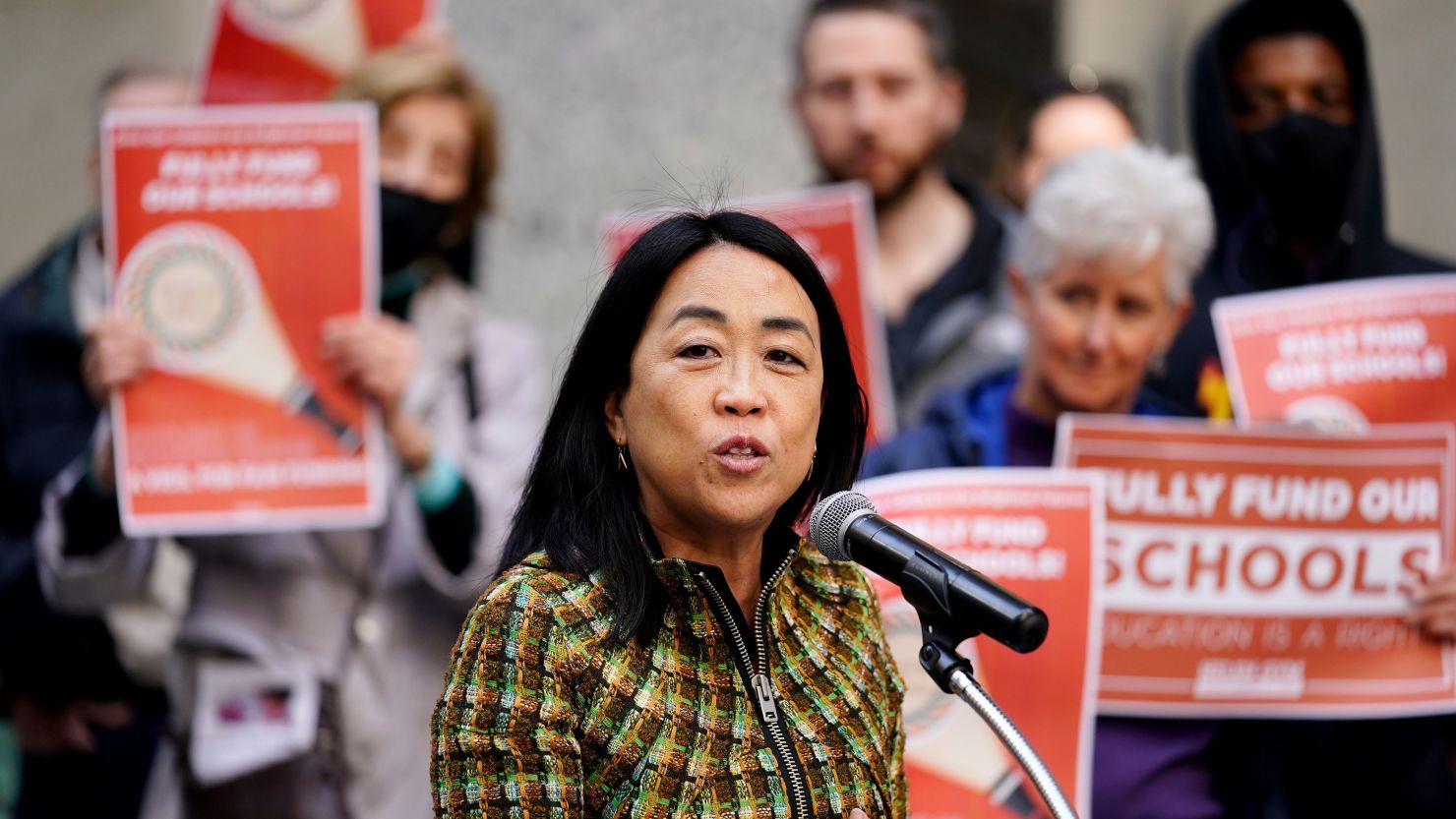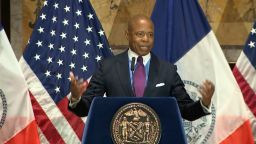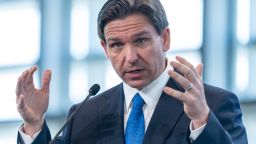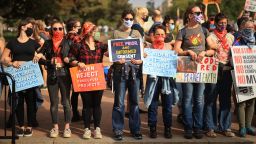Helen Gym does not want the story of her campaign for mayor of Philadelphia to be told as a referendum on the state of the national progressive movement.
But for many allies and supporters, in the city and across the country, that view has become increasingly welcome. Gym’s dynamism, decadeslong history of activism and more recent successes grinding through legislation as a city council member make the 55-year-old daughter of Korean immigrants an ideal candidate, they believe, to lead Philadelphia – and also to highlight the movement’s strategic reset and recent successes at the local level.
Victory for Gym in Tuesday’s Democratic primary, a field of a dozen now slimmed to nine, would put her on a path to becoming the city’s 100th mayor – and the first woman and Asian American to hold the office. It would also be an exclamation point for many on the left who, after so many recent disappointments, are on a remarkable winning streak in municipal elections.
Progressive champions have been elected to run some of the largest American cities, from Los Angeles and Boston, which elected Karen Bass and Michelle Wu, respectively, and, most recently, in Chicago, where former union organizer and relative political unknown Brandon Johnson’s election shocked the Windy City establishment. The left’s focus on local races is a departure for a movement, supercharged by Sen. Bernie Sanders’ 2016 presidential campaign and its national ambitions, that is now more uniformly focused on remaking the Democratic Party from the bottom up.
“I’m running for office to change the way people actually live in this city,” Gym said during an interview with CNN at her campaign headquarters last week. “And that has to be felt by the people themselves, not by an ideology, not by a quote-unquote abstract movement. That’s got to be felt by people themselves. And I have to bring it to scale.”
During her time on the city council, where she was the leading at-large vote-getter in the 2015 and 2019 elections, Gym helped pass legislation to protect tenants from eviction and to guarantee a range of upgrades to city schools, including the guarantee of full-time nurses and clean water in buildings, as well as a “Fair Workweek” ordinance that promises wage workers fair notice of schedule changes. She is campaigning on a platform that includes a jobs guarantee for adults younger than 30 and the promise to declare a state of emergency on gun violence on her first day in office, along with robust funding for schools and a “holistic” public safety project.
“I want political change to be more than just a change of faces,” Gym said, when asked about the historic nature of her campaign. “It just has to be bigger than that. There needs to be a real transformation of what politics can do right now. And especially at the municipal level, where the odds are set against us.”
All eyes on Philly
Gym is loath to discuss the national implications of her race, which is widely believed to be headed toward a nail-biting finale between her and three other candidates. Speaking rapidly and often in full paragraphs, all while meticulously peeling an orange, Gym spelled out her broader political vision, arguing that good local government was the only way to change voters’ expectations for Washington – to get them asking, as she put it, “Why do we settle for anything less in our Congress?
“Helen really represents the coming of age of the progressive movement,” said Joseph Geevarghese, the executive director of Our Revolution, which says it is mobilizing 40,000 members to make 300,000 voter contacts. “She emerged as a community activist and organizer, she then sought political power, sought to bring movement politics into the political realm. … Helen’s trajectory reflects the trajectory of the progressive movement.”
Which also means that there is tough opposition in front of her.
Outside spending financed by a conservative billionaire is targeting Gym’s campaign. But in former City Council members Cherelle Parker and Allan Domb, along with Rebecca Rhynhart, a former city controller, she also faces a deep field of strong candidates with robust support across the city’s overlapping power centers. Most observers expect the contest to be decided by the narrowest of margins, with Gym banking on a loyal base and strong turnout powered by her field operation.
Gym’s journey, from public school teacher to advocacy work and then lawmaker, also mirrors the evolution of progressives’ relationship with electoral politics. For years, before her first campaign in 2015, Gym did her political work in the streets and with hyper-local issue groups. She joined forces with parents and the teachers union and railed against efforts to privatize Philadelphia’s underfunded, dilapidated public school system, which spent years being starved under state control.
In the process, she established a reputation – and widely known political brand – that follows her still, one that has livened the grassroots and attracted the support of leading progressive figures and groups from around the country.
But back then, Gym said, she did not see much appeal in trying to join the policymakers.
“I didn’t see a lot of power in in holding political office,” Gym said. “I believe that our politics are only as strong as our movements. So if the movement isn’t really strong, your politics are not going to be that strong.”
Progressives came more squarely to a similar understanding in the aftermath of another mayoral election, 90 miles north in New York City. Eric Adams’ ascent – in another crowded primary field – was a coup for moderate Democrats who hailed the former police captain as a template for other candidates.
After his election in 2021, Adams declared himself the “face of the new Democratic Party,” a boast that rankled progressives but was embraced by many top party officials, including President Joe Biden, who pulled him close.
But nearly eighteen months later, Adams’ place in the national Democratic firmament is less clear. His criticism of Biden’s immigration policies has rankled some, especially as Biden enters a reelection campaign. Outside New York, the progressives Adams so enjoyed roasting during his campaign are on a winning streak in major citywide elections.
“The election of a conservative Democrat in New York City is certainly the outlier,” said Bill Neidhardt, who worked as a senior adviser to Johnson’s campaign in Chicago and previously worked for Sanders and former New York Mayor Bill de Blasio. “Yes, there’s an ideological part, but then there’s also how these elected officials view themselves within the Democratic Party. And for Helen, she’s the one who’s getting support from some of the most well-known Democrats in the country.”
Though her national backing comes largely from leading progressive figures – Sanders and New York Rep. Alexandria Ocasio-Cortez are headlining a rally for Gym on Sunday – she also has the support of New Jersey Rep. Andy Kim, a liberal but hardly a firebrand, and mainstream labor groups such as the American Federation of Teachers.
Education takes center stage
In Philadelphia, Gym – while not the only candidate in the running with liberal credentials – has the enthusiastic loyalties of groups such as Reclaim Philadelphia, along with local chapters of the Working Families Party and Our Revolution. The Philadelphia Federation of Teachers, Gym’s longtime allies, are also taking a lead role in fueling her volunteer army.
Jerry Jordan, the president of the union, said he first met Gym about 25 years ago, around when she formed a group called Parents United. As the state fought to take over the city schools, he said, Gym was there beside teachers marching on Broad Street against a move many assumed would lead to privatization efforts.
“Ultimately, the district was taken over in 2001 and, needless to say, there were a number of battles that we faced as a union and as a community,” Jordan said. “Helen has always been there for every one of those fights.”
There is an elemental component to clashes over public education, Gym said, that extrapolates well beyond the particular issues being debated.
“To me, if you can take away a child’s nurse and counselor, the ability to have a clean, safe learning environment, playgrounds on the schoolyard and after-school programs from the earliest ages,” she said, “you’ll take anything away from anybody. If you can disinvest in a 5-year-old, you’ll disinvest in their parents, you’ll disinvest in their communities, and you’ll disinvest in that city ultimately.”
Gym’s willingness to lead the charge, with uncompromising rhetoric that sometimes belies her estimable legislative record, led Philadelphia Magazine to described her in a 2013 profile as an arch “agitator” and the rare “private citizen who works without the heft of any meaningful institutional support” but has “managed to build herself one of the city’s largest bully pulpits.”
In nearly a decade since, Gym’s influence – and record – has grown. And her roots in the fight for public education funding and support have dovetailed with renewed popularity and backing for organized labor, including teachers’ unions, which have enjoyed a renaissance over the past half-decade.
“The strength of teachers’ unions in these municipal elections is a direct response to the decades of privatization that has been pushed by corporate Democrats,” Neidhardt said, describing a dynamic he observed in Chicago. “Their relentless push to privatize schools is now generating a very energetic pushback from both teachers’ unions themselves, but also grassroots organizers who don’t want to see more schools privatized.”
The issue took on heightened relevance in Chicago, where Johnson ultimately ran against Paul Vallas, an enemy of public school advocates around the country, including in Philadelphia, where during his time as CEO of the district he played a lead role in implementing a plan for the widespread privatization of city schools.
“I think there is a direct link between the ‘Red for Ed’ teacher strikes (of 2018 and 2019) and the fact that progressive, education-forward candidates are winning,” Geevarghese said. “The strikes were unique in that the teachers were strategic in that they made their fight about the broader community. They foreshadowed what these candidates are fighting for, because those strikes were not just about teacher pay – it’s about what’s happening in our community.”
‘Getting away from the jargon’
Progressives like Gym, and Johnson in Chicago, have also succeeded where some better-known national figures have stumbled by consciously sowing “a people-power movement and getting away from jargon,” as Gym’s good friend and political ally, Philadelphia City Council Member Kendra Brooks, put it.
Ditching inaccessible or more academically tinged rhetoric – “anything that starts with ‘intersectionality’ and ‘marginalization,’” Brooks joked – was among the lessons the left took from Adams’ election in New York.
“We realized that in order for us to tap in and activate everyday people, (we need) to speak in terms that they understand, in terms that are relatable, so that they can then carry your message on,” Brooks said. “We’re getting better at it because if the message can’t be carried by the masses, then we’re not winning as organizers.”
Maurice Mitchell, the Working Families Party’s national director, said he believes Gym is uniquely equipped to bridge those gaps and deliver the left’s message in more widely appealing terms – especially now as outside money from a wealthy conservative activist is flooding the race.
“The policies might be progressive, absolutely, but the coalition has to be broader than people who identify as progressives if you want to lead and govern a major city,” Mitchell said. “And I think Helen is positioned to do both – to articulate a progressive policy agenda in a way that is broad and builds a bigger ‘we’ but also is strong enough to take on the interests that want to sideline that agenda.”
Among those seeking to derail Gym are billionaire conservative donor Jeffrey Yass, who has put nearly a million dollars into a new super PAC, called the Coalition for Safety and Equitable Growth, which has spent heavily on ads and mailers targeting Gym in the closing days of the campaign.
The Working Families Party, founded more than two decades ago in New York, has a robust presence in Philadelphia and says it has more than 600 volunteers knocking on hundreds of thousands of doors in support of Gym. The organization is also working closely with the PFT and the leading municipal and hospitality workers’ unions. (Parker also has significant labor support, including from the powerful Philadelphia Building Trades Council.)
Those Gym allies, like Jordan, the teachers union president, are hoping that the backlash to the late spending galvanizes her supporters and the rank-and-file canvassing for her ahead of the vote.
“I cannot tell you the number of tweets, emails, and other kinds of communications that came from our members” in response, Jordan said. “It has motivated our people to knock on those doors for these next few days in order to get out the vote for Helen.”






